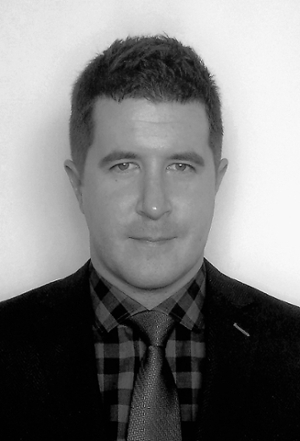
Mark Celinscak, Ph.D.
- Louis & Frances Blumkin Professor of Holocaust & Genocide Studies
- Executive Director, Sam & Frances Fried Holocaust & Genocide Academy
- Modern Europe, Holocaust and Genocide Studies, War and Culture Studies
Additional Information
Education
Ph.D., York University
M.A., University of Toronto
B.Ed., Brock University
B.A., Laurentian University
Background
Dr. Celinscak is a historian of twentieth century Britain and Europe, specializing in war, Holocaust, and genocide studies. He is the author of Distance from the Belsen Heap: Allied Forces and the Liberation of a Nazi Concentration Camp, winner of a Vine Award for Non-Fiction, and Kingdom of Night: Witnesses to the Holocaust, winner of a Canadian Jewish Literary Award for Holocaust literature. He is the co-editor of Artistic Representations of Suffering: Rights, Resistance, and Remembrance, Global Approaches to the Holocaust: Memory, History, and Representation, and Two Roses: A Story of Deception and Determination in Nazi Germany.
His primary area of research is the Second World War and its impact on the twentieth century. He is particularly interested in the relationship between war and culture. Dr. Celinscak is currently working on a new project that explores the process of denazification in the British zone of postwar Germany. This work is supported by a European Holocaust Research Infrastructure fellowship at the Wiener Library for the Study of the Holocaust and Genocide in London, England. He has collaborated on exhibitions at the Vancouver Holocaust Education Centre and the Durham Museum. He is an elected Fellow of the Royal Historical Society and is the Editor-in-Chief of the Journal of History.
Dr. Celinscak currently serves as co-chair of the Consortium of Higher Education Centers for Holocaust, Genocide, and Human Rights Studies. He was the principal investigator of a UNO Big Idea, the Samuel Bak Museum: The Learning Center. Dr. Celinscak was a Pearl Resnick Postdoctoral Fellow at the United States Holocaust Memorial Museum.
He has held fellowships at Keene State College, Western Washington University, the University of Mississippi, Goodenough College in London, and the Holocaust Educational Foundation of Northwestern University. In addition, he worked on the Azrieli Foundation Holocaust Survivor Memoirs Program, interviewing survivors and editing their manuscripts.
Frequently Taught Courses
- The Holocaust
- Comparative Genocide
- Second World War
- First World War
- Modern European History
- Modern British History
Publications
Kingdom of Night: Witnesses to the Holocaust (University of Toronto Press, January 2022)
Additional Information
Education
Ph.D., York University
M.A., University of Toronto
B.Ed., Brock University
B.A., Laurentian University
Background
Dr. Celinscak is a historian of twentieth century Britain and Europe, specializing in war, Holocaust, and genocide studies. He is the author of Distance from the Belsen Heap: Allied Forces and the Liberation of a Nazi Concentration Camp, winner of a Vine Award for Non-Fiction, and Kingdom of Night: Witnesses to the Holocaust, winner of a Canadian Jewish Literary Award for Holocaust literature. He is the co-editor of Artistic Representations of Suffering: Rights, Resistance, and Remembrance, Global Approaches to the Holocaust: Memory, History, and Representation, and Two Roses: A Story of Deception and Determination in Nazi Germany.
His primary area of research is the Second World War and its impact on the twentieth century. He is particularly interested in the relationship between war and culture. Dr. Celinscak is currently working on a new project that explores the process of denazification in the British zone of postwar Germany. This work is supported by a European Holocaust Research Infrastructure fellowship at the Wiener Library for the Study of the Holocaust and Genocide in London, England. He has collaborated on exhibitions at the Vancouver Holocaust Education Centre and the Durham Museum. He is an elected Fellow of the Royal Historical Society and is the Editor-in-Chief of the Journal of History.
Dr. Celinscak currently serves as co-chair of the Consortium of Higher Education Centers for Holocaust, Genocide, and Human Rights Studies. He was the principal investigator of a UNO Big Idea, the Samuel Bak Museum: The Learning Center. Dr. Celinscak was a Pearl Resnick Postdoctoral Fellow at the United States Holocaust Memorial Museum.
He has held fellowships at Keene State College, Western Washington University, the University of Mississippi, Goodenough College in London, and the Holocaust Educational Foundation of Northwestern University. In addition, he worked on the Azrieli Foundation Holocaust Survivor Memoirs Program, interviewing survivors and editing their manuscripts.
Frequently Taught Courses
- The Holocaust
- Comparative Genocide
- Second World War
- First World War
- Modern European History
- Modern British History
Publications
Kingdom of Night: Witnesses to the Holocaust (University of Toronto Press, January 2022)